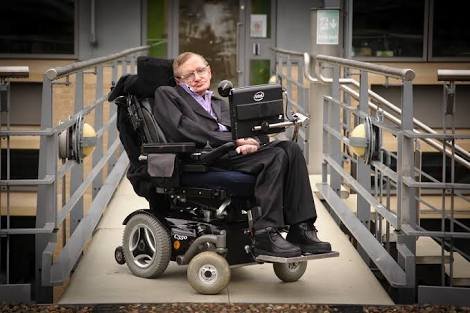
Renowned British physicist Stephen Hawking, whose mental genius and physical disability made him a household name and inspiration across the globe, has died at age 76, a family spokesman said on Wednesday.
“We are deeply saddened that our beloved father passed away today,” professor Hawking's children, Lucy, Robert, and Tim said in a statement carried by Britain's Press Associationnews agency.
“He was a great scientist and an extraordinary man whose work and legacy will live on for many years.”
“His courage and persistence with his brilliance and humour inspired people across the world,” the family said. “He once said, 'It would not be much of a universe if it wasn't home to the people you love.' We will miss him forever.”
The physicist and cosmologist had defied death for decades after being diagnosed with Lou Gehrig’s disease when he was a 21-year-old student at Cambridge University. Most people die within a few years of the diagnosis of the disease, also called the motor neurone disease.
Hawking first gained attention with his 1988 book A Brief History of Time, a simplified overview of the universe. It sold more than 10 million copies worldwide. His subsequent theories have revolutionised modern understanding of concepts like black holes and the Big Bang theory of how the universe began.
For 30 years, he held a mathematics post at the Cambridge University previously held by Sir Isaac Newton. Hawking retired from that position in 2009 and then became the director of research at the university’s Centre for Theoretical Cosmology.
Hawking achieved all that despite being nearly entirely paralysed and in a wheelchair since 1970. In his last days, he communicated only by twitching his right cheek. Since catching pneumonia in 1985, Hawking needed around-the-clock care and relied on a computer and voice synthesizer to speak.
A tiny infrared sensor on his glasses hooked up to a computer detected Hawking’s cheek pulses, which selected the words displayed on a computer screen. The chosen words were then spoken by the voice synthesizer. It could take up to 10 minutes for Hawking to formulate a single sentence.
His last book, The Grand Design, was published in 2010.
Lou Gehrig’s disease, also called amyotrophic lateral sclerosis, or ALS, attacks motor neurons, cells that control the muscles. Patients typically suffer muscle weakness and wasting, become paralysed and have problems talking, swallowing and breathing. Only about 10 per cent of patients live longer than a decade.
Hawking married twice and has three children and three grandchildren. With his daughter Lucy, he wrote several children's books on physics.
sources: DAWN
Hi! I am a robot. I just upvoted you! I found similar content that readers might be interested in:
https://www.dawn.com/news/1395197